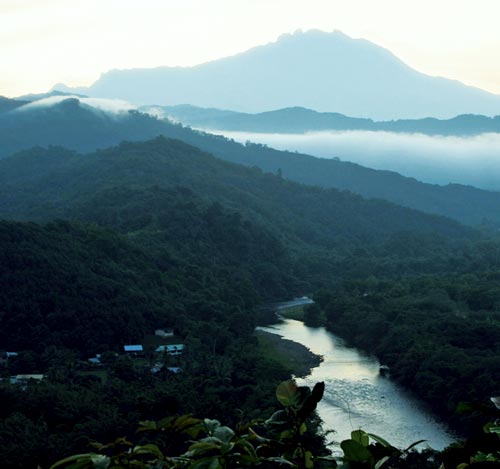



Some 12 hours later than anticipated, we were speeding up the Gum Gum Creek. The engines were going well. The steering was perfect. Again I took the wheel. Tundah sat on the front deck, to keep an eye out for sinkers. As we came out into the estuary, Tundah resumed his position at the wheel. Our mechanic friend had been right. It was almost dark. It was low water again, and the tide was starting to flow.
From the Gum Gum estuary to the small fishing village of Kulapis, which marked the entrance to Labuk Bay, we had to follow the north-facing shore of the Sandakan peninsula. Because it was low tide, my idea of hugging the shore-line was impossible. To avoid the mud banks, we had to go about two or three miles offshore before turning into the deeper channel which was normally used by large kumpits and timber-tugs.